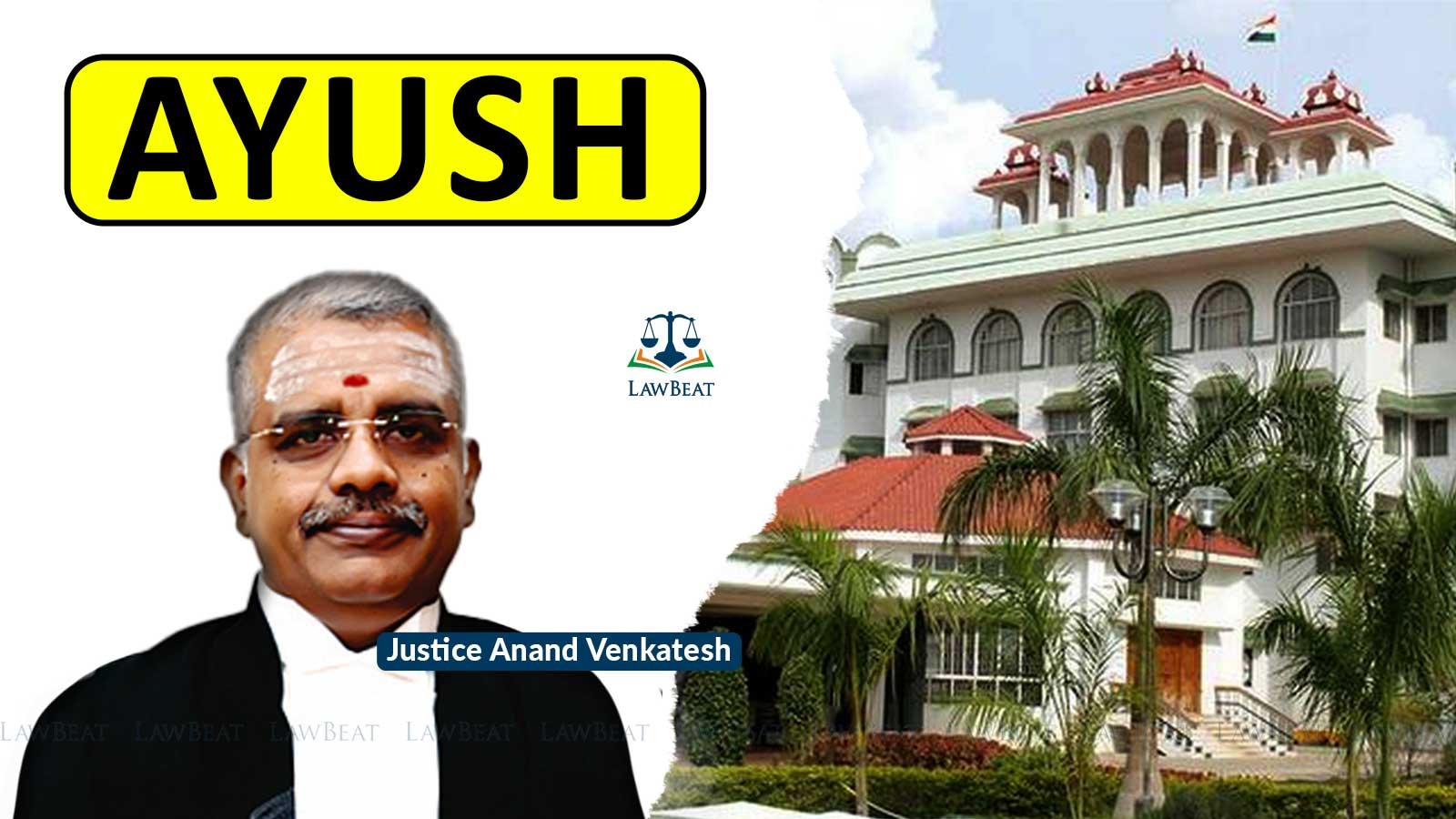Madras High Court asks IRDAI to place AYUSH treatment on par with Allopathic treatment in medical insurance policies

Any preference for allopathy over AYUSH, the court argued, would be discriminatory, urging IRDAI to consider this while formulating policies
In a noteworthy judgment, the Madras High Court has directed the Insurance Regulatory and Development Authority of India (IRDAI) to consider AYUSH treatments at par with Allopathy treatments when reimbursing treatment expenses.
Highlighting the contributions of AYUSH practitioners during the pandemic, Justice N Anand Venkatesh acknowledged that traditional medicines were recommended for COVID-19 patients, providing effective relief.
The court expressed the view that policyholders should not be denied reimbursement for expenses incurred on AYUSH treatments under their medical insurance.
The court emphasized that during the pandemic, traditional medicines played a crucial role in treating COVID-19 patients when allopathy lacked specific medications.
Additionally, the court emphasized patients' autonomy in choosing their preferred treatment and insisted that expenses for both types of treatments should be treated equally. Any preference for allopathy over AYUSH, the court argued, would be discriminatory, urging IRDAI to consider this while formulating policies.
"The third respondent must bear in mind that the traditional treatment in India which falls under the head of AYUSH treatment must also be encouraged and it must get the same weightage as is given to allopathic treatment and a person, who chooses to undergo AYUSH treatment should be entitled to receive the insurance amount towards the expenses incurred by him, as is done to a patient who undergoes allopathic treatment. This has to be implemented by the third respondent in all future policies," said the bench.
The recommendation was made by the court while dealing with two pleas filed seeking direction to Star Health and Allied Insurance Co Ltd for full reimbursement under the petitioners' insurance policies for their treatment during the COVID-19 pandemic. The petitioners had insurance policies of Rs. 5 lakh and Rs. 4 lakh, respectively in their names.
However, the insurance company cited IRDAI regulations, indicating capped amounts for AYUSH treatments which the patients had received for their ailments.
The court, after reviewing the policies, noted that expenses for treatments other than allopathy were excluded from full reimbursement. It further observed that the maximum amounts under the caps for AYUSH treatments which were Rs. 15,000 for the policy of Rs. 5 lakhs and for the policy of Rs.4 lakhs, Rs.10,000, had already been disbursed to the petitioners.
Therefore, court opined that since the maximum cap that was fixed under the policy had been paid to the petitioners, no further direction could be issued to the insurance company to pay the entire amount that was claimed by the petitioners.
However, the court noted that Star Health and Allied Insurance Company Limited that had informed that it had come up with a new policy called as AYUSH plan policy, wherein even AYUSH treatment is covered and the expenses incurred for the treatment is reimbursed and by virtue of this new policy, AYUSH treatment has been brought on par with the allopathic treatment.
"There shall be a direction to the third respondent to act upon the suggestion made by this Court to place AYUSH treatment on par with allopathic treatment and direct the insurance companies to reimburse the insurance amount on equal scales," directed the court while disposing of the writ petitions.
Case Title: K. Krishna and Another v. The Managing Director, M/s.Star Health and Allied Insurance Company Ltd and Others
